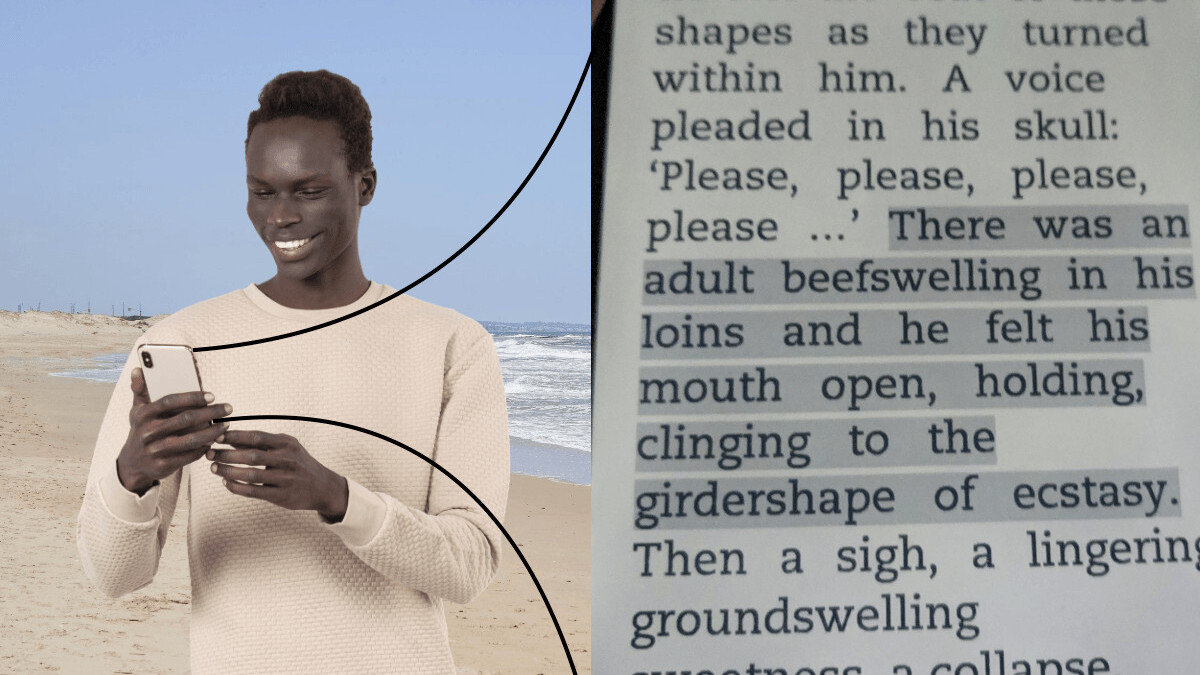
As a physical book apologist, it pains me to write this. I love books. I love the unwieldy weight, the slowly yellowing pages, the (ugh, sorry for the cliché) smell, and the fact that I can look at a stack and recall where and when I read each of them. But I have found a new love. Now book on phone is my best friend.
Ever since my son was born, my life has taken an uninvited turn for the practical. And from a purely pragmatic view, ingesting letters from a heavy cuboid that requires multiple hands to continue reading, is not.
A phone, on the other hand, is.
First of all, it’s always with me. I can grab it during the hours of repetitive movement required to get my baby to sleep. I can grab it in the few moments I get to myself in the bathroom. I can read in the dark, during the rare moments when everyone but me is asleep and the house is silent.
According to Screen Time, I spent three and a half hours on my phone on average in the past seven days. Realistically, not all of that time will be spent reading, but even if I used three of those hours to read at a very average speed, I could get through the Iliad in three days. If I lost my mind, I could read the full Harry Potter series in just over three weeks. Or the whole Game of Thrones saga in 39 days (yeah I know it’s called A Song of Fire and Ice, shut up nerd).
Then there are the obvious advantages: phones have adjustable backlight, a built-in bookstore, readability and accessibility settings, (sometimes) automatic dark mode, search, and best of all, one-handed page turning, need I continue? Ok, most modern phones are also water-proof (to a degree), so reading in bath no longer requires complicated maneuvers with bath towels placed strategically nearby.
Finally, there’s a less tangible advantage. When reading something engrossing, one of those stories that you want to spend every free minute reading, the lure of social media and other on-phone time-wasters simply disappears.
It’s not even a conscious effort. The success of apps made to gobble up your attention is totally dependent on there being nothing better to do. And with a good book on your phone, there is! With one big caveat from experience: picking a bad or boring book can actually lead to more social media use to procrastinate reading the boring one – and since you already have the phone in hand, it’s easier to just give up and go on Instagram.
Of course there are some drawbacks too. A phone screen is often smaller than a book page. On the one hand, this means that not much text fits on a screen and you’ll be turning pages more often. On the other hand, look at you tear through those pages! You should be proud of yourself, you amazing word-muncher.

Also, an analog, cellulose-based stack of pages will never run out of batteries. A phone can. But it’s also 2019, and you’re never far from a socket, are you? Or may I suggest investing in one of those nifty portable chargers?
And finally, one might look terribly addicted staring at a phone instead of a book for hours in public places. But who cares about what other people think when you’re totally immersed in some amazing science-fiction world? Nobody, that’s who.
Practically, I can’t think of any other drawback. Except for one huge, glaring issue: ownership.
If you buy a physical book, it’s yours. You have it and own it. You can lend it to friends and forget you did. You can regift a book you do or don’t like. You can burn it and laugh maniacally at the teachings you’re denying the world. You can sell it.
Most ebooks you purchase online have some form of Digital Rights Managent (DRM) that stipulates what you can and can’t do with your electronic book. Sometimes, you can use an ebook file on multiple reader apps, other times a book is bound to a certain app or device.
DRM and all of its issues are a bit outside of the scope of this article, so before I get sucked into this rabbit hole, it suffices to say caveat emptor when purchasing ebooks. Some places offer more reasonable terms than others. We’ll publish a better guide on this soon, I promise.
I’m still a rookie when it comes to reading books on phone, but a veteran colleague told me he buys the physical book if he really liked it. He also told me he gets both the ebook and the audiobook so he can switch to audio when he’s unable to read. He’s advanced.
This method might be more expensive, but it does tick the nostalgia box when it comes to having a physical copy to look at once in while, and lug along as an exertional tribute when moving house. In any case, reading is good whichever way you choose, maybe reading on your phone will only help you read a bit more. Which is great!
I’ve ran on far too long. Reading a book on a phone is great. If you don’t believe me, Project Gutenberg has DRM-free classic books for free you can download to give it a try. Also Apple, Amazon, Kobo, and Google have pretty generous return policies, so if you don’t agree with me, you can just get your money back.
Nothing is stopping you! Go forth and read.
Get the TNW newsletter
Get the most important tech news in your inbox each week.





